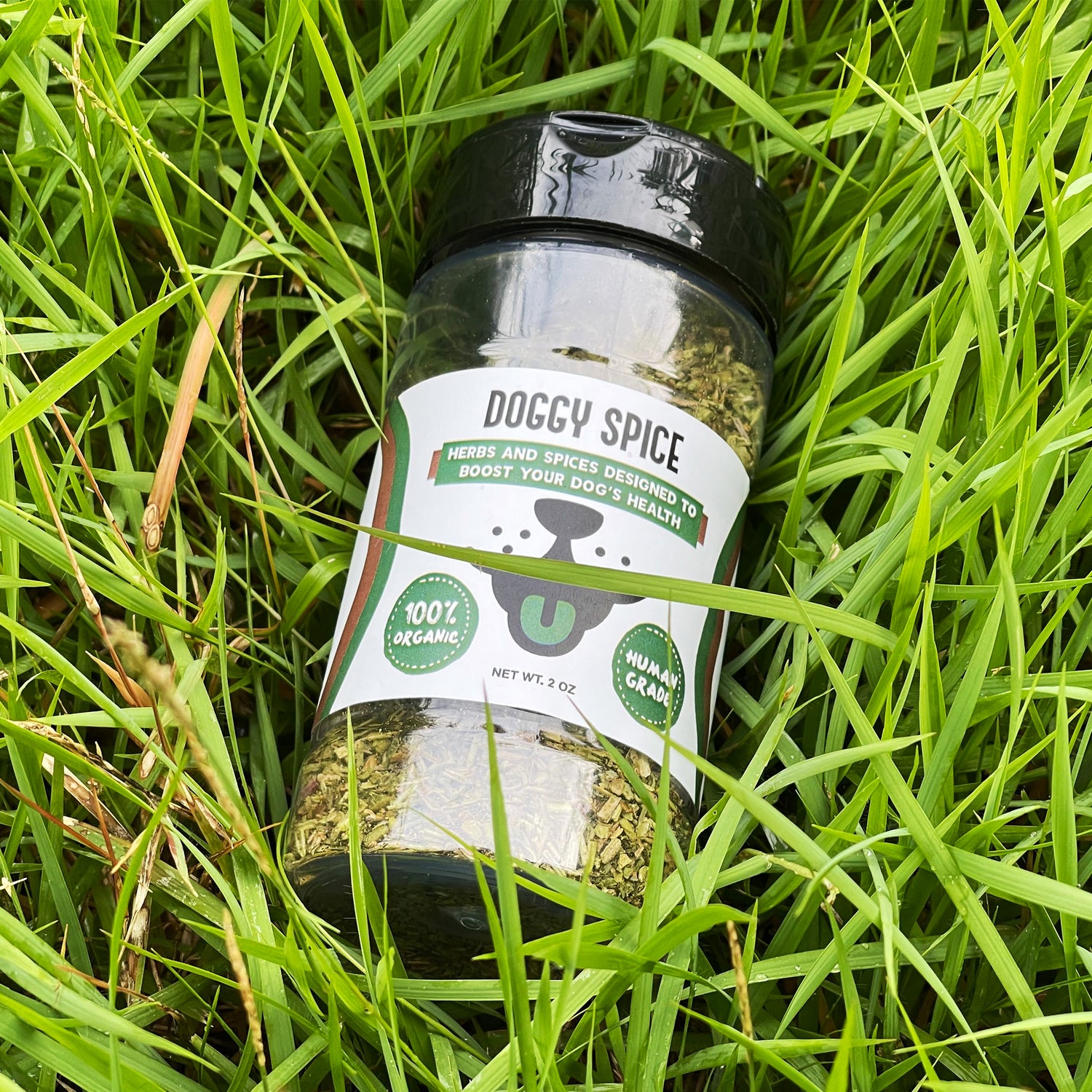
10 Best Fruits and Vegetables For Dogs
Share
Introduction
As a caring dog owner, you're always searching for ways to improve your dog's diet naturally. You might wonder, “Do dogs eat fruits and vegetables?” The answer is yes! 🐕 Fresh fruits and vegetables can offer essential vitamins, minerals, and antioxidants to support your pup's health. But which ones are the best? Let's explore the top 10 fruits and vegetables that are safe and nutritious to ensure a healthy dog!
How to Know if Your Dog is Healthy
You may ask, “Is my dog healthy?” or wonder, “How do I know if my dog is healthy?” Observing your dog’s overall appearance, behavior, and energy levels can provide clues. 💚
Consistent signs such as these are good indicators:
- a shiny coat
- regular bowel movements
- a playful attitude are good indicators.
Including fruits and vegetables in your dog's diet can help promote these signs of health, contributing to a well-rounded and balanced diet. 🐾
Why Include Fruits and Vegetables in Your Dog’s Diet?
Including a variety of healthy fruits and vegetables in your dog’s diet is one of the best dog health tips you can follow. 🐶 These natural foods are packed with nutrients that help boost your dog’s immune system, improve digestion, and maintain healthy skin and fur.
Understanding how to keep your dog healthy involves offering the right balance of these foods to ensure they receive the full range of benefits. ✅
"A variety of ingredients, as well as fortification and supplementation as required, are key to a well-balanced diet meeting the recommended allowances for adult dogs, and moreover, digestibility of nutrients must be considered" (Tanprasertsu et al., 2021).

10 Best Fruits and Vegetables For Dogs
1. Blueberries
Antioxidant-rich Superfruit 🍇
Blueberries are a powerhouse of antioxidants, supporting your dog’s immune system and overall health. They can help protect against cell damage caused by free radicals.
2. Carrots
Crunchy Snack with Vitamin A 🥕
Carrots are a low-calorie treat packed with Vitamin A, which promotes healthy vision and skin. Their crunchy texture also aids in maintaining clean teeth.
3. Apples (No Seeds)
Fiber and Vitamin C Booster 🍏
Apples provide fiber, which aids digestion, and Vitamin C to support immune health. Remember to remove the seeds and core, as they contain small amounts of cyanide.
4. Spinach
Leafy Green for Iron & Calcium 🌿
Rich in iron and calcium, spinach can help boost your dog’s energy levels and support bone health. Serve it cooked or chopped raw, but avoid adding seasonings.
5. Pumpkin
Digestive Health Powerhouse 🎃
Pumpkin is excellent for digestion, helping with both constipation and diarrhea. It's a great source of fiber and beta-carotene, which promotes a healthy gut.
6. Sweet Potatoes
Beta-Carotene & Fiber 🍠
Sweet potatoes are loaded with beta-carotene, which supports eye health, and fiber, aiding in digestion. They are best served cooked and plain.
7. Green Beans
Low-Calorie Treat with Fiber 🌱
Green beans are a low-calorie vegetable that’s perfect for weight-conscious dogs. Full of fiber, they help promote a feeling of fullness while supporting digestive health.
8. Bananas
Potassium & Energy Source 🍌
Bananas are an excellent source of potassium, which supports muscle function, and they can provide a quick energy boost. Just remember to feed them in moderation due to their sugar content.
9. Cucumbers
Hydration & Low-Calorie Snack 🥒
Cucumbers are 95% water, making them a hydrating and low-calorie snack for dogs. They also contain vitamins B1, C, and K, which are essential for overall health.
10. Broccoli
Vitamin C and Fiber Powerhouse 🥦
Broccoli is a nutrient-dense vegetable that offers vitamins C and K. It supports immune function and digestion, but it should be served in small amounts to avoid stomach upset.

How to Safely Serve Fruits and Vegetables to Your Dog
When introducing new fruits and vegetables to your dog's diet, follow these tips:
Frequently Asked Questions (FAQ)
Can Dogs Eat Fruit Every Day❓
Yes, but fruit should be given in moderation due to its sugar content. Stick to small portions as treats.
What Fruits Should Dogs Avoid❓
Avoid grapes, raisins, and cherries, as they can be toxic to dogs.
Can I Feed My Dog Raw Vegetables❓
Yes, most vegetables can be served raw, but some, like sweet potatoes and spinach, should be cooked for easier digestion.
What Fruits Can Dogs NOT Eat❓
Don’t assume all fruits are safe for your dog. Here are some to avoid:
How Much Fruit Can a Dog Have❓
Moderation is key: treats, including fruit, should make up no more than 10% of your dog's daily diet.

Other Herbs and Spices For A Healthy Dog
- Cleavers (Galium Aparine)
- Rosemary
- Dandelion Greens
- Basil
- Peppermint
- Celery Seeds
- Dill
- Oregano
- Parsley
- Thyme
- Ginger
- Tumeric
These herbs and spices can easily be incorporated into your dog’s meals to promote overall well-being. 🌱

Conclusion
Fruits and vegetables are a fantastic way to supplement your dog’s diet with essential nutrients. Just be sure to stick to dog-safe options like those listed above and introduce them gradually. 🐾 Remember to consult with your vet before making any major dietary changes to ensure the best for your furry friend.
References:
Tanprasertsu, J., Tate, D. E., & Shmalberg, J. (2021). Roles of plant-based ingredients and phytonutrients in canine nutrition and health. Journal of Animal Physiology and Animal Nutrition, September 8, 2021.

